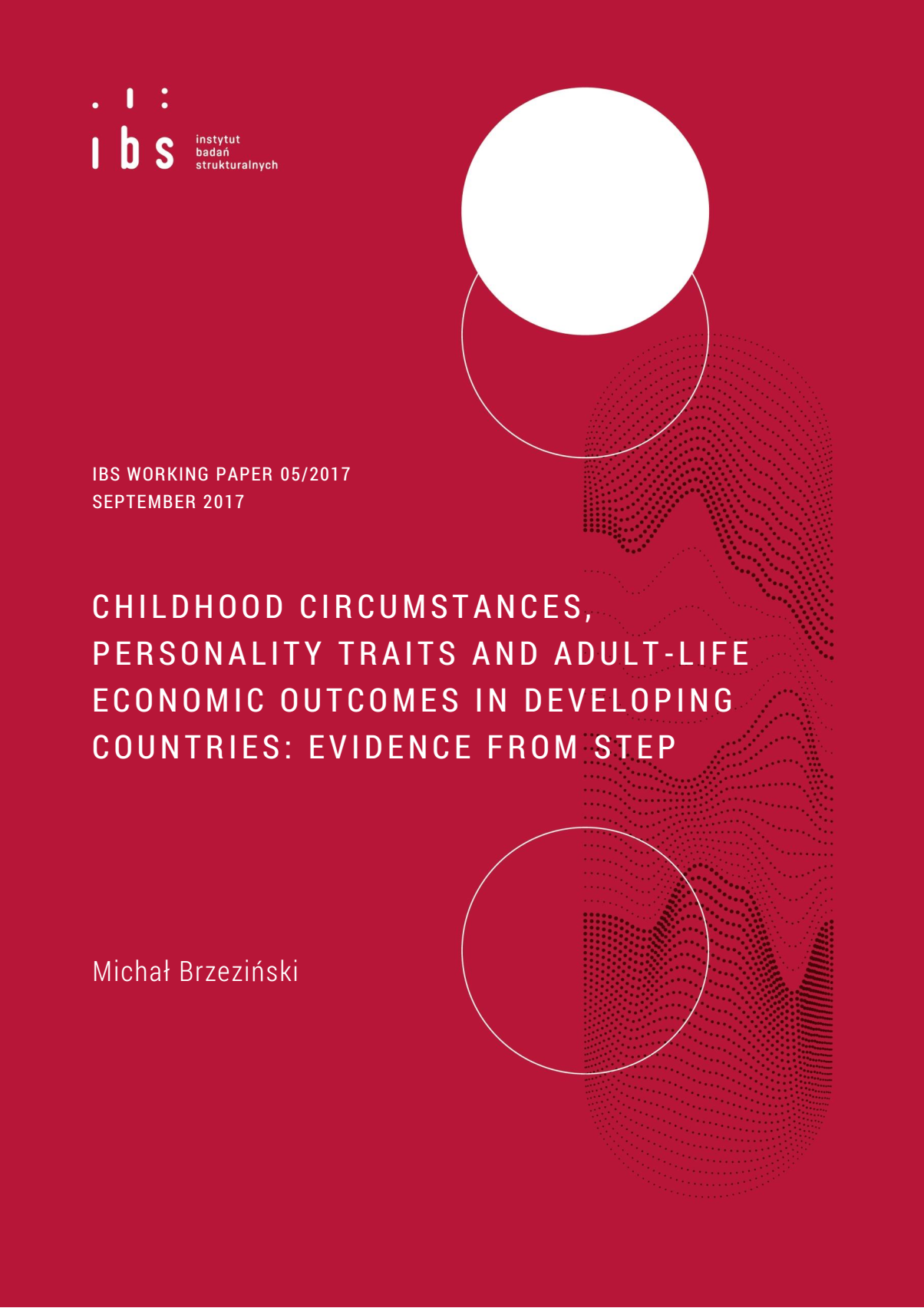This paper studies the associations between childhood circumstances (e.g. parental background, early-life socio-economic status, negative economic shocks during childhood, etc.), personality traits (the Big Five, grit) and adult-life economic outcomes (educational attainment, employment opportunity, wages, life satisfaction, and obesity) in nine developing countries. The data come from the World Bank’s STEP Skills Measurement Survey conducted over 2012-2013. Our results show that childhood circumstances are associated more strongly than personality traits with education and wages. Agreeableness, and neuroticism are relatively strong correlates of life satisfaction in developing countries, as compared with early-life socio-economic status. Grit is not significantly related to adult-life outcomes, when other personality traits are controlled for. Obesity is positively associated with extraversion and neuroticism, while childhood circumstances do not predict it.

I would like to thank Piotr Lewandowski (Institute for Structural Research) for helpful suggestions. This paper was financially supported by the Network for Jobs and Development under the auspices of the World Bank. The usual disclaimers apply. All errors are mine.

